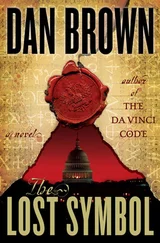Richard Edgcumbe - Byron - The Last Phase
Здесь есть возможность читать онлайн «Richard Edgcumbe - Byron - The Last Phase» — ознакомительный отрывок электронной книги совершенно бесплатно, а после прочтения отрывка купить полную версию. В некоторых случаях можно слушать аудио, скачать через торрент в формате fb2 и присутствует краткое содержание. Жанр: literature_19, Поэзия, foreign_antique, foreign_prose, foreign_poetry, Биографии и Мемуары, на английском языке. Описание произведения, (предисловие) а так же отзывы посетителей доступны на портале библиотеки ЛибКат.
- Название:Byron: The Last Phase
- Автор:
- Жанр:
- Год:неизвестен
- ISBN:нет данных
- Рейтинг книги:3 / 5. Голосов: 1
-
Избранное:Добавить в избранное
- Отзывы:
-
Ваша оценка:
- 60
- 1
- 2
- 3
- 4
- 5
Byron: The Last Phase: краткое содержание, описание и аннотация
Предлагаем к чтению аннотацию, описание, краткое содержание или предисловие (зависит от того, что написал сам автор книги «Byron: The Last Phase»). Если вы не нашли необходимую информацию о книге — напишите в комментариях, мы постараемся отыскать её.
Byron: The Last Phase — читать онлайн ознакомительный отрывок
Ниже представлен текст книги, разбитый по страницам. Система сохранения места последней прочитанной страницы, позволяет с удобством читать онлайн бесплатно книгу «Byron: The Last Phase», без необходимости каждый раз заново искать на чём Вы остановились. Поставьте закладку, и сможете в любой момент перейти на страницу, на которой закончили чтение.
Интервал:
Закладка:
Lady Byron writes from her own personal experience of a time when tender affection or sympathy formed no part of Byron’s nature; of a time when he had no regard for the interests or the happiness of others; when he lived according to his own humours, and when his will was his law. Byron’s earlier poetry amply supports Lady Byron’s view of so miserable a state of mind. But there is reason to hope – nay, we might say to believe – that, in the last years of his life, Byron began to realize that a merciful God would be wholly incapable of such manifest injustice as to condemn His creatures to suffer for crimes which they were powerless to resist and predestined to commit. He believed in God and in the immortality of the soul, and has publicly declared that all punishment which is to revenge, rather than to correct, must be morally wrong. ‘Human passions,’ wrote Byron, ‘have probably disfigured the Divine doctrines here: but the whole thing is inscrutable.’
Countess Guiccioli tells us that, whatever may have been Byron’s opinions with regard to certain points of religious doctrine, sects, and modes of worship, in essential matters his mind never seriously doubted. Matthews in his Cambridge days, and Shelley towards the close of life, moved him not at all. Between the commencement of Byron’s career and its close, his mind passed successively through different phases before arriving at the last result. Leicester Stanhope, who was at Missolonghi with Byron, and who knew him well latterly, says:
‘Most persons assume a virtuous character. Lord Byron’s ambition, on the contrary, was to make the world imagine that he was a sort of Satan, though occasionally influenced by lofty sentiments to the performance of great actions. Fortunately for his fame, he possessed another quality, by which he stood completely unmasked. He was the most ingenuous of men, and his nature, in the main good, always triumphed over his acting.’
Parry, who stood at Byron’s bedside when he died at Missolonghi, tells us that Byron died fearless and resigned. Could there be a better proof than these words, spoken by Byron a few hours before he passed away? —
‘Eternity and space are before me; but on this subject, thank God, I am happy and at ease. The thought of living eternally, of again reviving, is a great pleasure. Christianity is the purest and most liberal religion in the world; but the numerous teachers who are eternally worrying mankind with their denunciations and their doctrines are the greatest enemies of religion. I have read, with more attention than half of them, the Book of Christianity, and I admire the liberal and truly charitable principles which Christ has laid down. There are questions connected with this subject which none but Almighty God can solve. Time and Space, who can conceive? None but God: on Him I rely.’
During the time that Byron lived at Metaxata, in Cephalonia, he seldom saw anyone in the evening except Dr. Stravolemo, one of the most estimable men in the island, who lived in that village. He had been first physician to Ali Pacha. He was an entertaining man, and afforded Byron much amusement by disputing with Dr. Bruno on medical questions.
‘Lord Byron,’ says Gamba, ‘had generally three or four books lying before him, of which he read first one, then the other, and used to contrive to foment those friendly contentions, which, however, never exceeded the proper bounds. Lord Byron’s favourite reading consisted of Greek history, of memoirs, and of romances. Never a day passed without his reading some pages of Scott’s novels. His admiration of Walter Scott, both as a writer and as a companion, was unbounded. Speaking of him to his English friends, he used to say: “You should know Scott; you would like him so much; he is the most delightful man in a room; no affectation, no nonsense; and, what I like above all things, nothing of the author about him.”’
One evening Colonel Napier, the British Resident, arrived at Byron’s house at a gallop, and asked for Drs. Bruno and Stravolemo. He said that a party of peasants who were road-making had, in excavating a high bank, fallen under a landslide and were in danger of their lives. There were at least a dozen persons entombed. Colonel Napier happened to be passing at the moment when the catastrophe occurred; help was urgently needed. Byron sent Dr. Bruno to their assistance, while he and Gamba followed as soon as their horses could be saddled.
‘When we came to the place,’ says Gamba, ‘we saw a lamentable spectacle indeed. A crowd of women and children were assembled round the ruins, and filled the air with their cries. Three or four of the peasants who had been extricated were carried before us half dead to the neighbouring cottages; and we found Mr. Hill, a friend of Lord Byron, and the superintendent of the works, in a state of the utmost consternation. Although an immense crowd continued flocking to the place, and it was thought that there were still some other workmen under the fallen mass of earth, no one would make any further efforts. The Greeks stood looking on without moving, as if totally indifferent to the catastrophe, and despaired of doing any good. This enraged Lord Byron; he seized a spade, and began to work as hard as he could; but it was not until the peasants had been threatened with the horsewhip that they followed his example. Some shoes and hats were found, but no human beings. Lord Byron never could be an idle spectator of any calamity. He was peculiarly alive to the distress of others, and was perhaps a little too easily imposed upon by every tale of woe, however clumsily contrived. The slightest appearance of injustice or cruelty, not only to his own species, but to animals, roused his indignation and compelled his interference, and personal consequences never for one moment entered into his calculations.’
In the month of December the Greek squadron anchored off Missolonghi, where Prince Mavrocordato was received with enthusiasm. He was given full powers to organize Western Greece. The Turkish squadron was at this time shut up in the Gulf of Lepanto.
Byron sent to inform Mavrocordato that the loan which he had promised to the Government was ready, and that he was prepared either to go on board some vessel belonging to the Greek fleet, or to come to Missolonghi and confer with him. Mavrocordato and Colonel Leicester Stanhope wrote to beg Byron to come as soon as possible to Missolonghi, where his presence would be of great service to the cause. In the first place money to pay the fleet was much wanted; the sailors were on the verge of mutiny. Mavrocordato was in a state of anxiety, the Greek Admiral looked gloomy, and the sailors grumbled aloud.
‘It is right and necessary to tell you,’ wrote Stanhope, ‘that a great deal is expected of you, both in the way of counsel and money. If the money does not arrive soon, I expect that the remaining five ships (the others are off) will soon make sail for Spezia. All are eager to see you. They calculate on your aiding them with resources for their expedition against Lepanto, and hope that you will take about 1,500 Suliotes into your pay for two or three months. Missolonghi is swarming with soldiers, and the Government has neither quarters nor provisions for them. I walked along the street this evening, and the people asked me after Lord Byron. Your further delay in coming will be attended with serious consequences.’
Byron at the same time received a letter from the Legislative Council, begging him to co-operate with Mavrocordato in the organization of Western Greece. It was now December 26, 1823. Byron chartered a vessel for part of the baggage; a mistico, or light fast-sailing vessel, for himself and his suite; and a larger vessel for the horses, baggage, and munitions of war. The weather was unfavourable and squally, the vessels could not get under-weigh, and the whole party were detained for two days, during which time Byron lodged with his banker, Mr. Charles Hancock, and passed the greater part of the day in the society of the British authorities of the island.
Читать дальшеИнтервал:
Закладка:
Похожие книги на «Byron: The Last Phase»
Представляем Вашему вниманию похожие книги на «Byron: The Last Phase» списком для выбора. Мы отобрали схожую по названию и смыслу литературу в надежде предоставить читателям больше вариантов отыскать новые, интересные, ещё непрочитанные произведения.
Обсуждение, отзывы о книге «Byron: The Last Phase» и просто собственные мнения читателей. Оставьте ваши комментарии, напишите, что Вы думаете о произведении, его смысле или главных героях. Укажите что конкретно понравилось, а что нет, и почему Вы так считаете.












